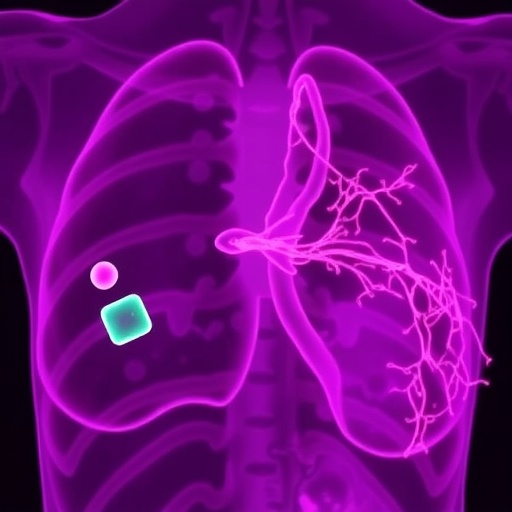PROTECT YOUR DNA WITH QUANTUM TECHNOLOGY
Orgo-Life the new way to the future Advertising by AdpathwayA groundbreaking study led by researchers at the University of Birmingham, in collaboration with the University of Turku in Finland, has unveiled a pivotal mechanism behind the failure of immunotherapy in numerous cancer patients. Supported by the National Institute for Health and Care Research (NIHR) Birmingham Biomedical Research Centre, this investigation sheds light on a secreted variant of the protein Clever-1, known as sClever-1, which impairs the immune system’s ability to combat tumors. These insights could revolutionize the way immunotherapies are tailored, potentially ushering in a new era of precision oncology.
Immunotherapy has transformed cancer treatment by harnessing the power of the immune system, specifically T cells, to attack malignant cells. However, despite remarkable successes in some patients, many do not respond or eventually develop resistance. The recently published study in Theranostics explores one underappreciated culprit behind this resistance: a circulating form of Clever-1 protein that dampens the immune response on a systemic level. This secreted protein disables T cell activation, making tumors invisible to one of the body’s primary defense mechanisms.
Clever-1, previously identified as a receptor on certain immune cells like macrophages, plays a suppressive role within the tumor microenvironment. The novel discovery focuses on sClever-1, which is released into the bloodstream and exerts a far-reaching inhibitory effect on T cells. By binding directly to activated T cells, sClever-1 disrupts their ability to signal and coordinate an effective anti-tumor immune response. This molecular “cloak” aids cancer cells in evading destruction, helping to explain why some tumors remain impervious to current immunotherapies like anti-PD-1 antibodies.
The study’s lead co-author, Professor Shishir Shetty of the University of Birmingham, emphasized the clinical relevance of these findings. He explained that elevated levels of sClever-1 in patients’ blood correlate strongly with resistance to established immunotherapeutic agents. This protein thus serves as both a biomarker for predicting treatment outcomes and a therapeutic target. The investigational antibody bexmarilimab was shown to inhibit the release of sClever-1, effectively lifting the immunosuppressive blockade and restoring T cell function.
Bexmarilimab represents a promising new class of drugs that not only counteract suppressive signals but also reprogram tumor-associated macrophages to support immune activation rather than inhibition. This dual functionality—blocking sClever-1 secretion and revitalizing immune cells—marks a significant advance in combination therapy approaches. Professor Shetty highlighted the potential to identify patients unlikely to benefit from monotherapy immunotherapies and instead offer tailored regimens incorporating bexmarilimab.
The international collaboration drew upon advanced immunological techniques, including plasma analysis from a robust cohort of patients encompassing 138 breast cancer cases, 193 individuals with advanced solid tumours, and 21 healthy donors. This comprehensive comparative analysis revealed markedly higher concentrations of sClever-1 in cancer patients’ circulation, underpinning its role as a systemic modulator of immunity rather than a localized factor confined to the tumor microenvironment.
Dr. Maija Hollmén, senior author from the University of Turku and the InFLAMES Flagship program, reflected on the broader implications of these mechanistic insights. By uncovering how cancer manipulates immune checkpoints at a molecular level through sClever-1 secretion, the research clarifies a key immune evasion strategy. This knowledge not only validates bexmarilimab’s molecular target but also encourages the development of novel agents capable of dismantling similar suppressive pathways.
A particularly striking aspect of the research is the demonstration that inflammatory signals within the tumor microenvironment induce macrophages and other immune cells to release sClever-1. This discovery links the inflammatory milieu of tumors to systemic immunosuppression and provides a mechanistic framework explaining why some tumors are refractory to PD-1 checkpoint inhibitors. It underscores the complexity of immune regulation in cancer and the need for multi-targeted treatment regimens.
The novel recognition that circulating sClever-1 directly binds to activated T cells advances our fundamental understanding of immune biology in cancer. T cells are central to orchestrating cytotoxic responses, and their functional paralysis by sClever-1 represents a critical barrier to effective immunotherapy. This paradigm shifts the focus from solely targeting checkpoints on T cells to also modulating systemic factors that govern T cell competence.
As immunotherapy continues to evolve, these findings highlight the necessity of personalized medicine strategies that incorporate molecular biomarkers like sClever-1. The ability to stratify patients based on their sClever-1 levels could refine treatment decisions, selecting candidates who would benefit from bexmarilimab-inclusive combinations. This precision approach aims to overcome the heterogeneity and complexity of tumor-immune interactions that limit current therapeutic efficacy.
The study’s forthcoming presentation at the 19th International Congress of Immunology (IUIS 2025) promises to ignite widespread interest and foster collaborative efforts to translate these insights into clinical practice. Supported by Faron Pharmaceuticals, which is developing bexmarilimab, the research epitomizes the synergy between academia and industry in accelerating innovation against cancer.
In summary, the identification and characterization of secreted Clever-1 as a systemic immune suppressor heralds a watershed moment in cancer immunotherapy research. By unveiling how sClever-1 impairs T cell activation and contributes to resistance against widely used treatments, the study opens new therapeutic avenues. The investigational antibody bexmarilimab’s capacity to inhibit this suppressive pathway and restore immune function offers hope for improving outcomes in patients with advanced, treatment-resistant cancers.
This pivotal work not only showcases the power of cutting-edge molecular and immunological techniques but also exemplifies the importance of global scientific collaboration. As the fight against cancer intensifies, such detailed mechanistic understanding will be indispensable for designing smarter, more efficacious immunotherapies. With further clinical validation, targeting sClever-1 could become a cornerstone in overcoming the immunotherapy resistance that currently curtails patient survival.
Subject of Research: The role of secreted Clever-1 (sClever-1) in modulating T cell responses and its impact on the efficacy of cancer immunotherapy.
Article Title: Secreted Clever-1 modulates T cell responses and impacts cancer immunotherapy efficacy
News Publication Date: 23-Jun-2025
Web References:
https://www.thno.org/v15p7501.htm
http://dx.doi.org/10.7150/thno.110544
References:
DOI: 10.7150/thno.110544
Keywords:
Immunotherapy, Immunology, Immunological techniques, Cancer
Tags: Birmingham Biomedical Research Centre initiativescancer resistance mechanismscollaboration in cancer researchimmune microenvironment in tumorsimmunotherapy failure in cancer treatmentnovel cancer treatment strategiesprecision oncology advancementsrole of Clever-1 protein in tumorssecreted variants of immune proteinssystemic immune response suppressionT cell activation inhibitiontherapeutic implications of sClever-1


 1 hour ago
6
1 hour ago
6





















 English (US) ·
English (US) ·  French (CA) ·
French (CA) ·